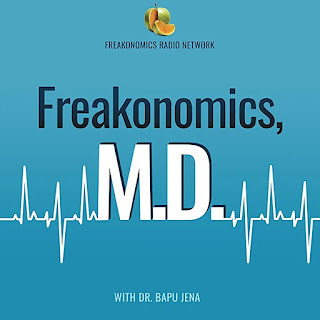When the host of your podcast is a medical doctor and economist, you can count on fresh insights and wide-angle view of socioeconomic and public health events, especially those that are troubling and tragic.
In the latest episodes of Freakonomics M.D., economist and medical doctor Bapu Jena investigates "The Hidden Consequences of School Shootings."
In the first half, Dr. Jena speaks with Wellseley economist Phillip Levine about his new research on unexpected results from media coverage of school shootings. It often can actually lead to a spike in gun sales - but not always. For instance, there were spike in gun sales after Sandy Hook and Parkland, but not after the recent tragedy in Uvalde.
In the second, Dr. Jena talks with Stanford professor of health policy Maya Rossin-Slater the impacts of shootings at schools on youth in the United States. She talks about her research into the mental-health consequences of school shootings, quantifying some impacts a school shooting has on the surviving students.
Dr. Jena also unveils the findings of his own new study, which was published this week. He and his colleague wondered how COVID-related school closures and lockdowns that led kids to spend more time at home, where guns are kept, could have impacted gun death rates among children.
Their research suggests that around 730 more children than usual were killed because of gun violence between January of 2020 and December of 2021. To put this number in perspective, it’s almost identical to the amount of COVID-related deaths in kids during that same period.
Check out the episode and prepare for some counterintuitive insights.

Comments
Post a Comment
Thank You for your input and feedback. If you requested a response, we will do so as soon as possible.